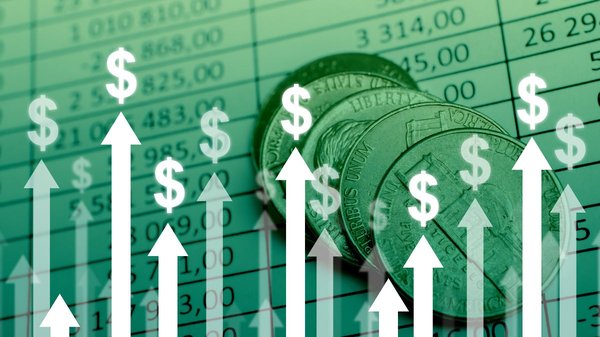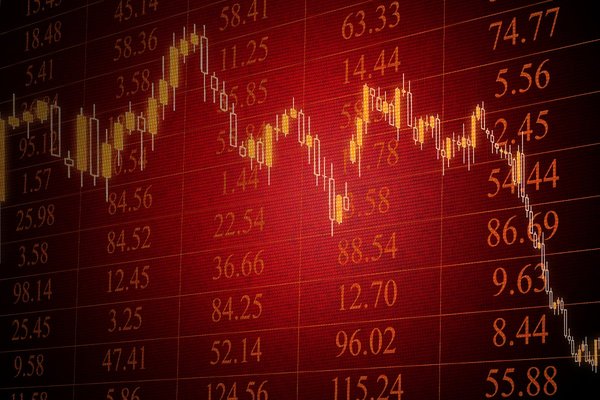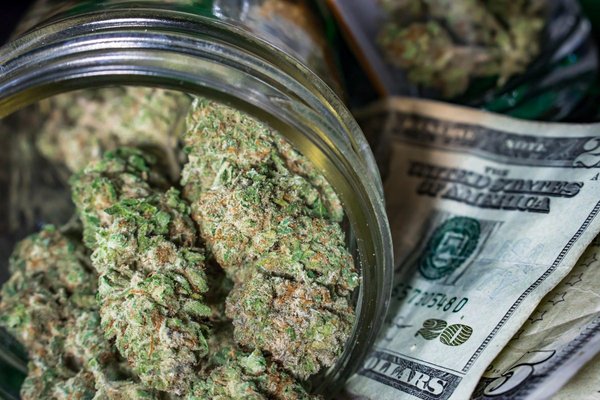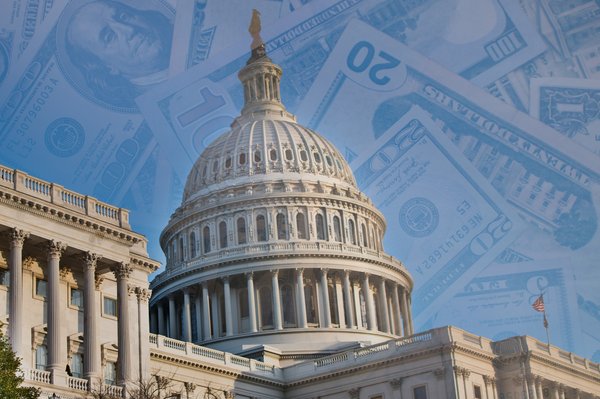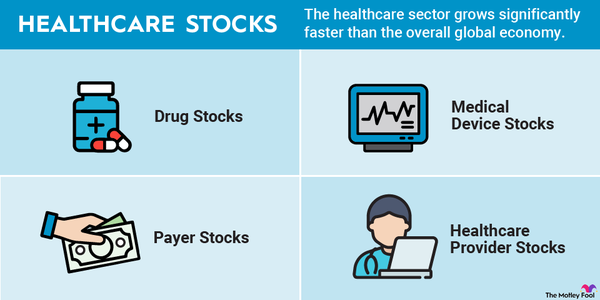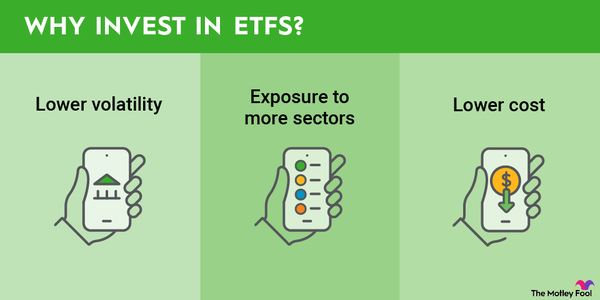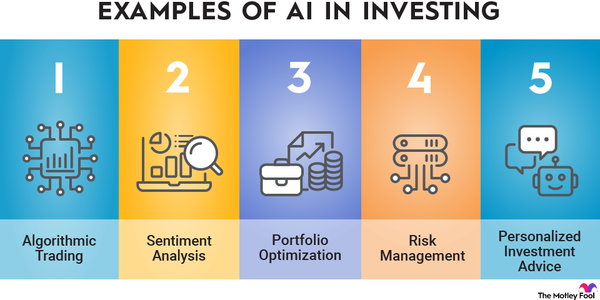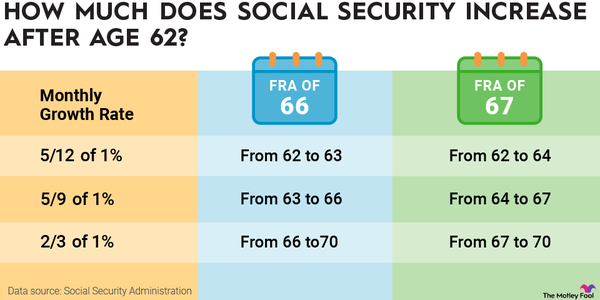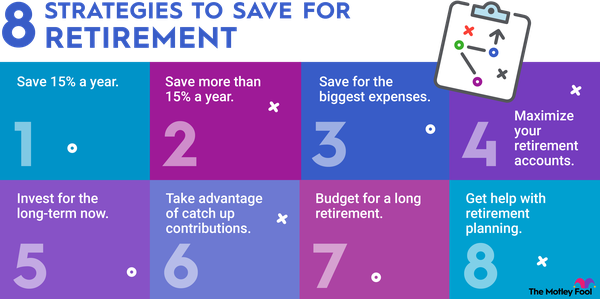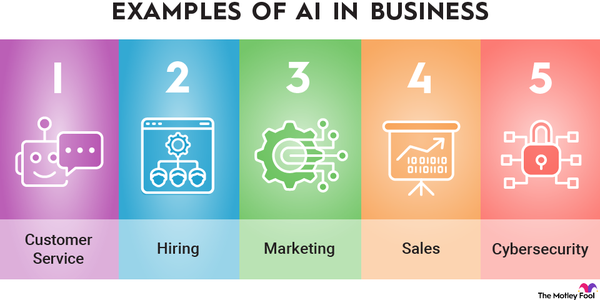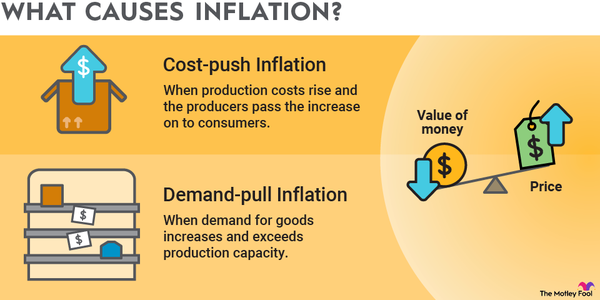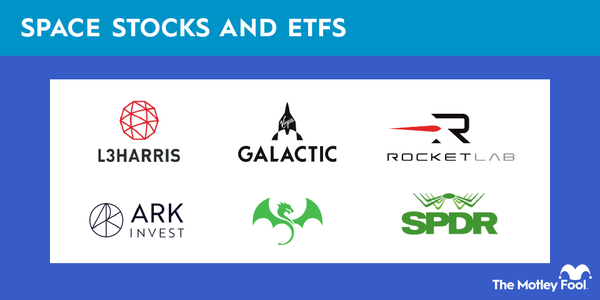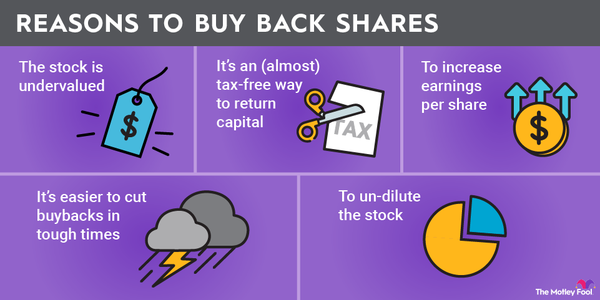Eli Lilly (NYSE:LLY) is the most valuable healthcare company, with UnitedHealth Group (NYSE:UNH) and Johnson & Johnson (NYSE:JNJ) rounding out the top three. Pharmaceutical companies dominate at the top of this market sector, making up more than half of the largest healthcare companies.
Largest healthcare companies
Largest companies by market cap in the healthcare sector
| Name and ticker | Market cap | Current price | Industry |
|---|---|---|---|
| Eli Lilly (NYSE:LLY) | $697 billion | $734.92 | Pharmaceuticals |
| UnitedHealth Group (NYSE:UNH) | $535 billion | $585.37 | Healthcare Providers and Services |
| Johnson & Johnson (NYSE:JNJ) | $371 billion | $153.96 | Pharmaceuticals |
| AbbVie (NYSE:ABBV) | $304 billion | $171.55 | Biotechnology |
| Novo Nordisk (NYSE:NVO) | $212 billion | $62.89 | Pharmaceuticals |
| AstraZeneca Plc (NASDAQ:AZN) | $208 billion | $67.09 | Pharmaceuticals |
| Abbott Laboratories (NYSE:ABT) | $225 billion | $129.74 | Healthcare Equipment and Supplies |
| Merck (NYSE:MRK) | $192 billion | $76.40 | Pharmaceuticals |
| Novartis Ag (NYSE:NVS) | $208 billion | $109.62 | Pharmaceuticals |
| Thermo Fisher Scientific (NYSE:TMO) | $165 billion | $437.06 | Life Sciences Tools and Services |
1 - 5
1. Eli Lilly
- Market cap: $779.73 billion (as of April 1)
- Revenue (TTM): $45.0 billion
- Gross profit (TTM): $36.8 billion
- Five-year annualized return: 45.44%
- Year founded: 1876
Pharmaceutical giant Eli Lilly is the world's most valuable drug company. A chemist and veteran of the Union Army founded the company in 1876, and it later became the first to mass-produce insulin and the polio vaccine.
Some of its top products are antidepressants, including Prozac, diabetes medication, weight loss drugs, and obesity treatments. In 2024, Eli Lilly partnered with Amazon (NASDAQ:AMZN) to offer home delivery of select medications.
2. UnitedHealth Group
- Market cap: $472.03 billion (as of April 1)
- Revenue (TTM): $396.6 billion
- Gross profit (TTM): $85.7 billion
- Five-year annualized return: 18.01%
- Year founded: 1977
UnitedHealth Group provides health insurance and healthcare. It sells health insurance products through its UnitedHealthcare division and offers healthcare services through its Optum division.
Although UnitedHealth Group is one of the largest healthcare companies, it has faced reputational issues in recent years. A subsidiary, Change Healthcare, was responsible for the largest reported healthcare data breach in history last year.
3. Johnson & Johnson
- Market cap: $394.52 billion (as of April 1)
- Revenue (TTM): $88.8 billion
- Gross profit (TTM): $61.4 billion
- Five-year annualized return: 8.86%
- Year founded: 1886
Johnson & Johnson is a pharmaceutical and medical device company. Its two primary business segments are Innovative Medicine, which develops and markets prescription drugs, and MedTech, which manufactures medical devices, including ACUVUE contact lenses.
Until 2023, Johnson & Johnson also had a robust consumer healthcare division that produced Tylenol, Band-Aid, and many other household names. It spun off that division into a new business, Kenvue (NYSE:KVUE), which focuses on pharmaceuticals.
4. AbbVie
- Market cap: $363.15 billion (as of April 1)
- Revenue (TTM): $56.3 billion
- Gross profit (TTM): $41.5 billion
- Five-year annualized return: 28.34%
- Year founded: 2012
AbbVie is a biotechnology company that develops treatments for serious diseases. It has produced therapies for autoimmune diseases, plaque psoriasis, blood cancers, and advanced Parkinson's disease, and those are just a few examples.
This is a relatively new company that started as a spinoff of Abbott Laboratories. It's now one of the better dividend stocks in the healthcare sector. It has regularly raised its dividend payout, so it has a high dividend yield.
5. Novo Nordisk
- Market cap: $233.14 billion (as of April 1)
- Revenue (TTM): $42.1 billion*
- Gross profit (TTM): $35.7 billion*
- Five-year annualized return: 21.11%
- Year founded: 1923
*Converted from Danish kroner.
Based in Denmark, Novo Nordisk is a leading pharmaceutical company that develops medications for diabetes, weight loss, and rare diseases. It's the maker of Ozempic, a treatment for diabetes, and Wegovy, a weight loss drug.
Novo Nordisk has a market presence in around 170 countries. It's one of the biggest companies in Europe, and at one point, its market cap surpassed Denmark's gross domestic product (GDP).
6 - 10
6. AstraZeneca
- Market cap: $227.94 billion (as of April 1)
- Revenue (TTM): $54.1 billion
- Gross profit (TTM): $43.9 billion
- Five-year annualized return: 13.50%
- Year founded: 1913 (Astra AB), Zeneca (1993), 1999 (merger of Astra AB and Zeneca)
AstraZeneca is a multinational biotech company that was formed through the merger of Astra AB, a Swiss company, and Zeneca, a British company. Its headquarters are in Cambridge, England.
This company makes prescription medication for many major diseases, including cardiovascular disease, metabolic disorders, renal disease, and rare diseases. It has 11 research and development (R&D) centers, 28 manufacturing sites, and a market presence in more than 130 countries.
7. Abbott Laboratories
- Market cap: $226.88 billion (as of April 1)
- Revenue (TTM): $42.0 billion
- Gross profit (TTM): $23.3 billion
- Five-year annualized return: 13.88%
- Year founded: 1888
Abbott Laboratories manufactures healthcare products and medical equipment. It has four main business segments: established pharmaceutical products, diagnostic products, nutritional products, and medical devices.
Like its spinoff AbbVie, Abbott Laboratories is popular among dividend investors. It has raised its dividend for over 50 consecutive years, putting it on the list of Dividend Kings.
8. Merck & Co.
- Market cap: $225.40 billion (as of April 1)
- Revenue (TTM): $64.2 billion
- Gross profit (TTM): $51.9 billion
- Five-year annualized return: 8.74%
- Year founded: 1891
Merck & Co. is a pharmaceutical company known for its impressive oncology portfolio. That includes its leading drug, Keytruda. Merck also makes diabetes medications, an HPV vaccine, and a chickenpox vaccine.
This company has made several major acquisitions recently. In 2024 alone, it acquired Harpoon Therapeutics, Abceutics, EyeBio, and Modifi Biosciences.
9. Novartis
- Market cap: $213.61 billion (as of April 1)
- Revenue (TTM): $51.1 billion
- Gross profit (TTM): $38.2 billion
- Five-year annualized return: 12.70%
- Year founded: 1886 (Sandoz), 1970 (Ciba-Geigy), 1996 (merger of Ciba-Geigy and Sandoz)
Novartis is a Swiss pharmaceutical company. It manufactures prescription drugs for various types of diseases. Some of its bestselling products include Entresto, a medication for use in heart failure, Cosentyx, a psoriasis treatment, and Kesimpta, a treatment for certain forms of multiple sclerosis (MS).
10. Thermo Fisher Scientific
- Market cap: $188.69 billion (as of April 1)
- Revenue (TTM): $42.9 billion
- Gross profit (TTM): $17.8 billion
- Five-year annualized return: 13.02%
- Year founded: 1956
Thermo Fisher Scientific is a life science and research company. It has a large, diverse portfolio of products that includes analytical equipment, diagnostic kits and instruments, and life science products used in medical research and diagnostics.
This Massachusetts-based company has a global presence with operations in more than 150 countries. It also employs approximately 125,000 people.
Related investing topics
Takeaways for investors
Healthcare sector takeaways for investors
Investing in healthcare stocks can be challenging. Among the 10 largest healthcare companies, only four have outperformed the S&P 500 over the last five years. The sector also has some unique risks. The development of new products often requires a lengthy regulatory process, particularly for pharmaceutical companies. And if a company's product may have caused harm to a consumer, there's the possibility of a lawsuit.
However, there are also plenty of reasons why healthcare is an attractive sector for investors. Some of the top healthcare companies pay high dividends, which is great for those looking to build passive income. Healthcare stocks also tend to be more resistant to market downturns. After all, no matter how the economy is doing, people always need healthcare.
















